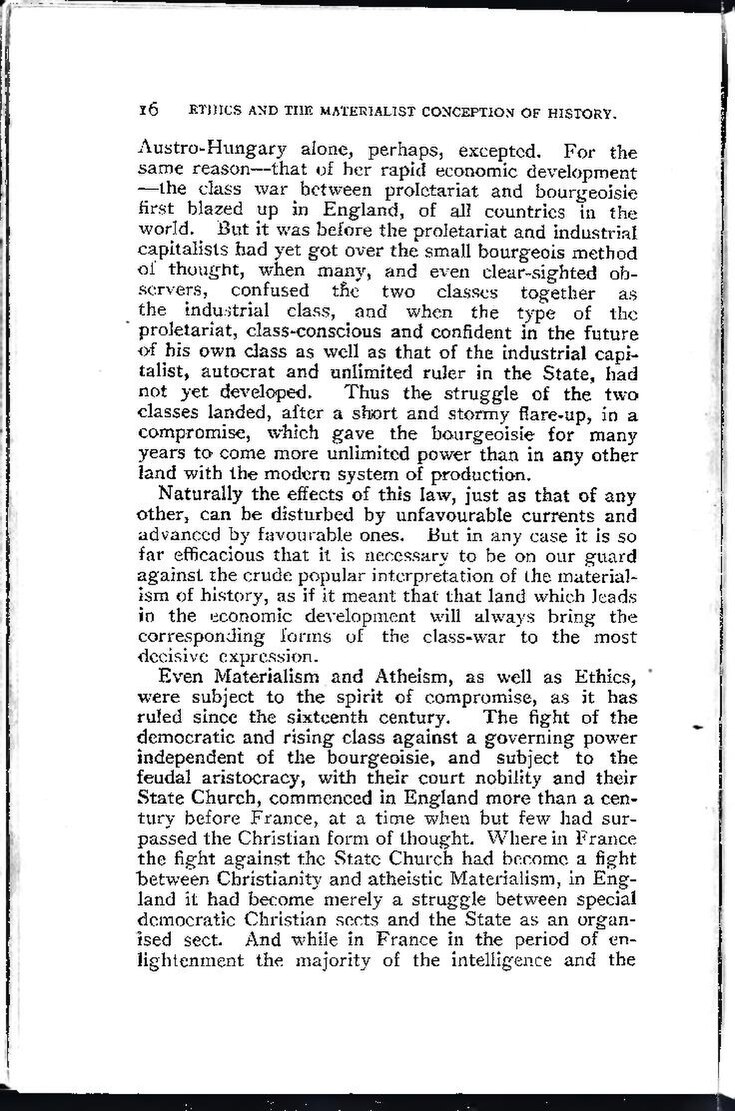Austro-Hungary alone, perhaps, excepted. For the same reason—that of her rapid economic development—the class war between proletariat and bourgeoisie first blazed up in England, of all countries in the world. But it was before the proletariat and industrial capitalists had yet got over the small bourgeois method of thought, when many, and even clear-sighted observers, confused the two classes together as the industrial class, and when the type of the proletariat, class-conscious and confident in the future of his own class as well as that of the industrial capitalist, autocrat and unlimited ruler in the State, had not yet developed. Thus the struggle of the two classes landed, after a short and stormy flare-up, in a compromise, which gave the bourgeoisie for many years to come more unlimited power than in any other land with the modern system of production.
Naturally the effects of this law, just as that of any other, can be disturbed by unfavourable currents and advanced by favourable ones. But in any case it is so far efficacious that it is necessary to be on our guard against the crude popular interpretation of the materialism of history, as if it meant that that land which leads in the economic development will always bring the corresponding forms of the class-war to the most decisive expression.
Even Materialism and Atheism, as well as Ethics, were subject to the spirit of compromise, as it has ruled since the sixteenth century. The fight of the democratic and rising class against a governing power independent of the bourgeoisie, and subject to the feudal aristocracy, with their court nobility and their State Church, commenced in England more than a century before France, at a time when but few had surpassed the Christian form of thought. Wherein France the fight against the State Church had become a fight between Christianity and atheistic Materialism, in England it had become merely a struggle between special democratic Christian sects and the State as an organised sect. And while in France in the period of enlightenment the majority of the intelligence and the
